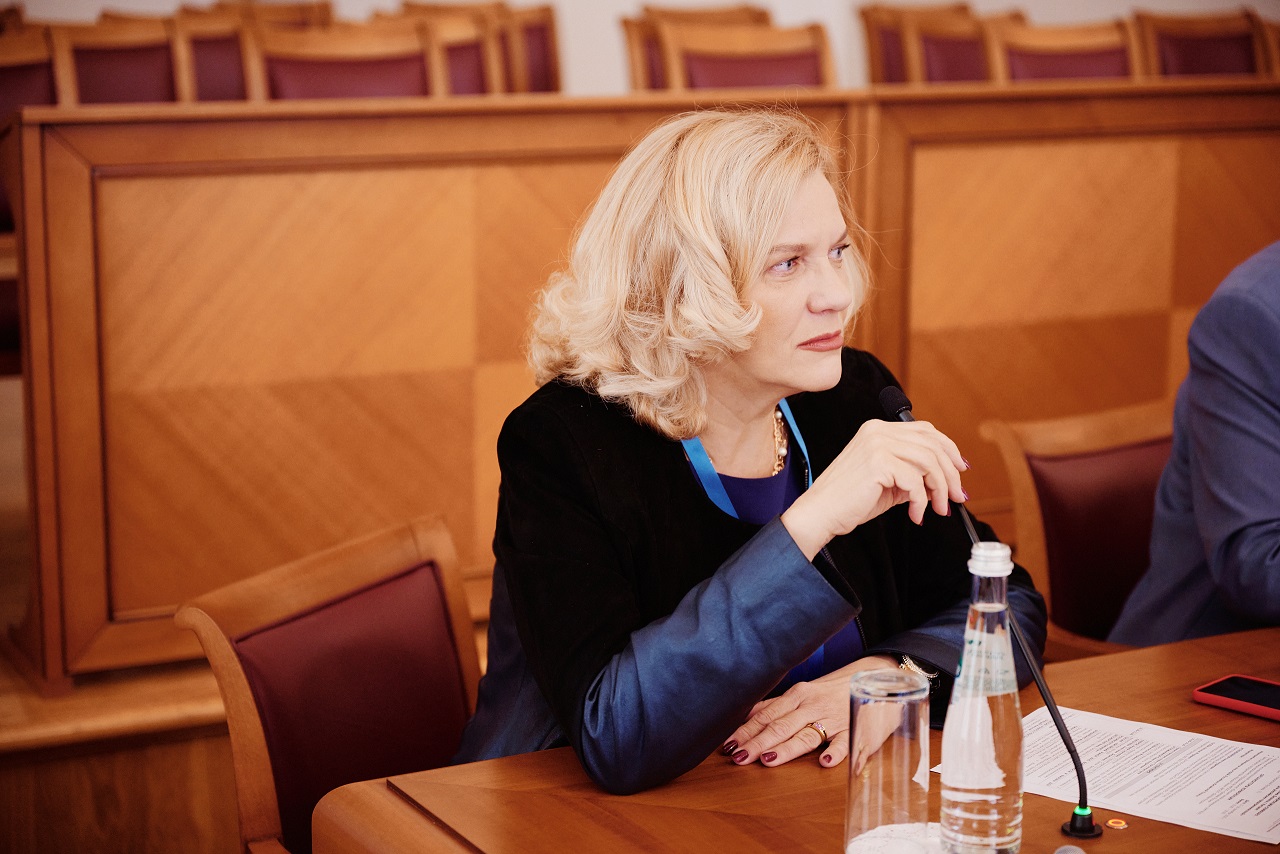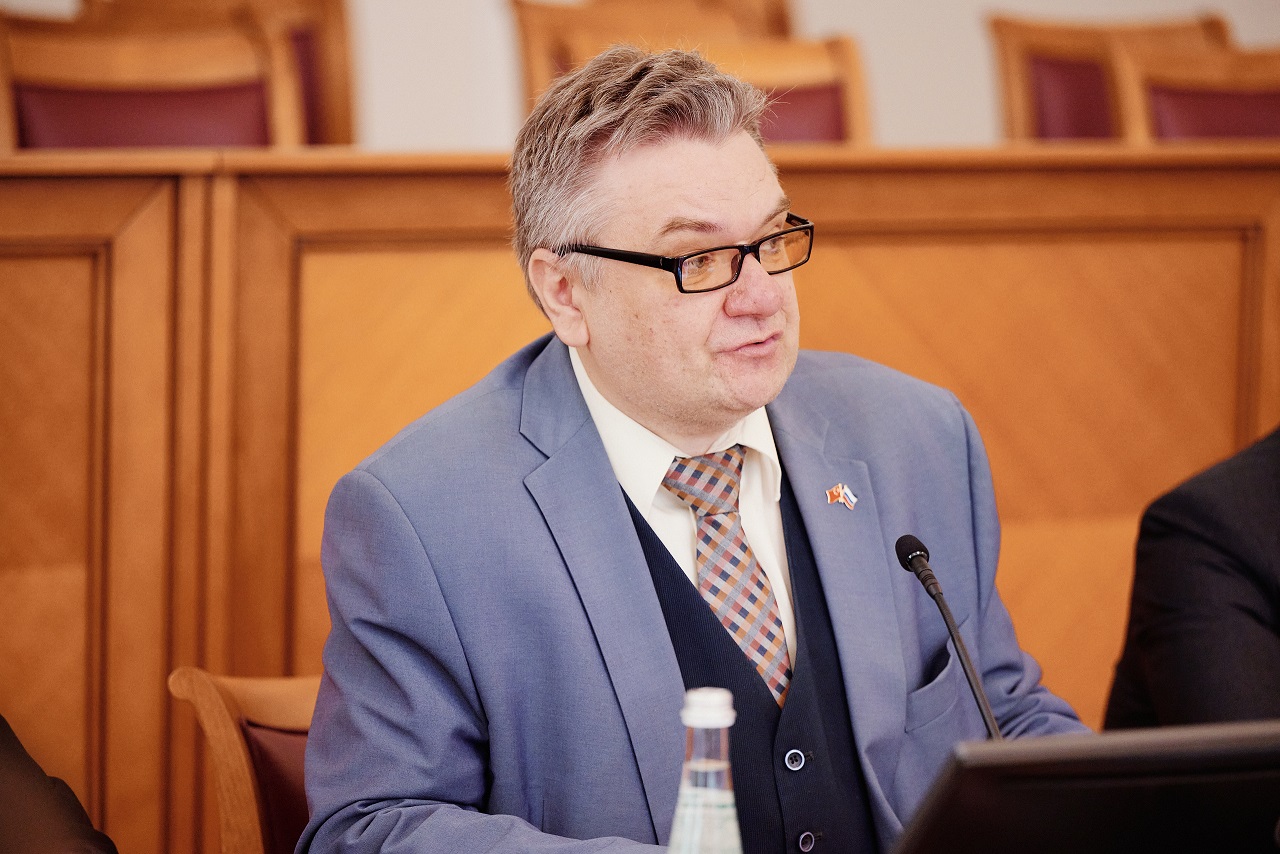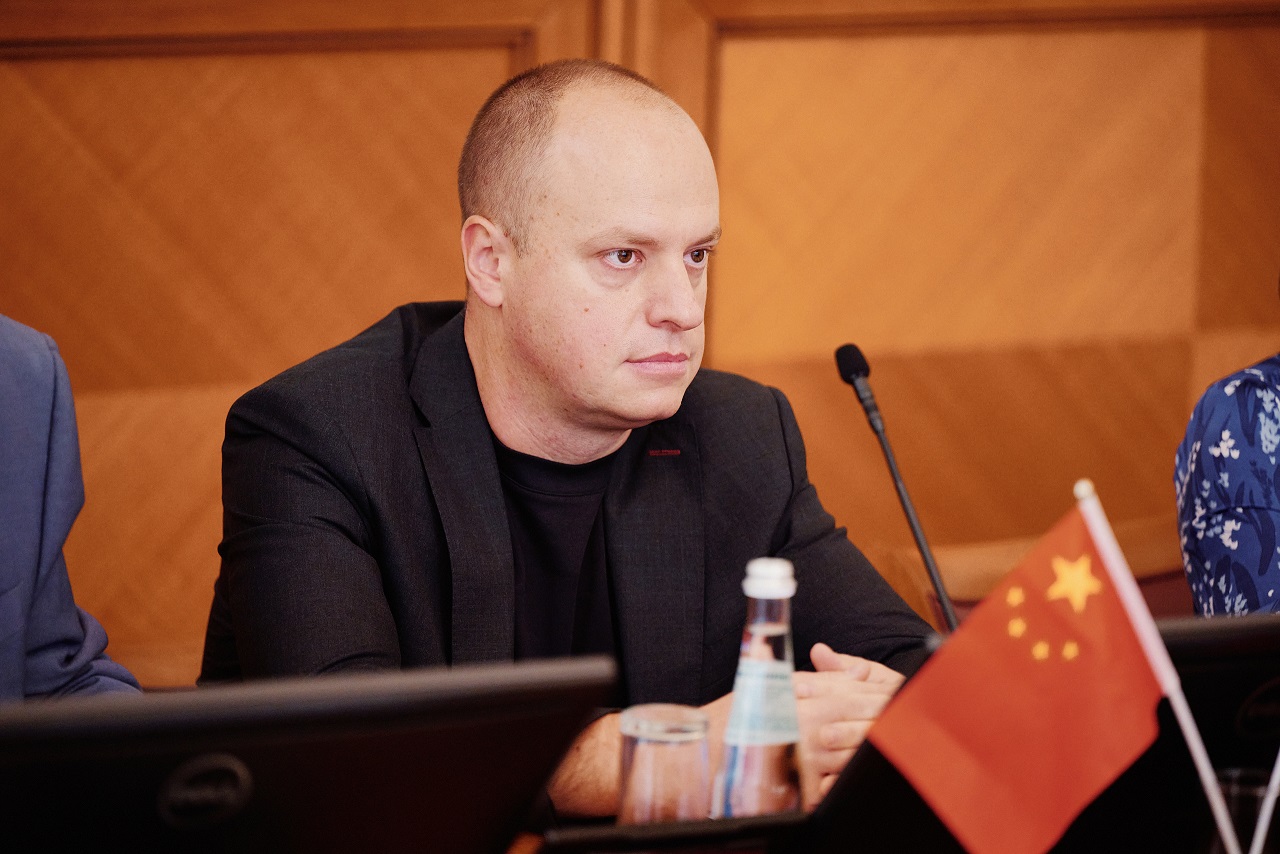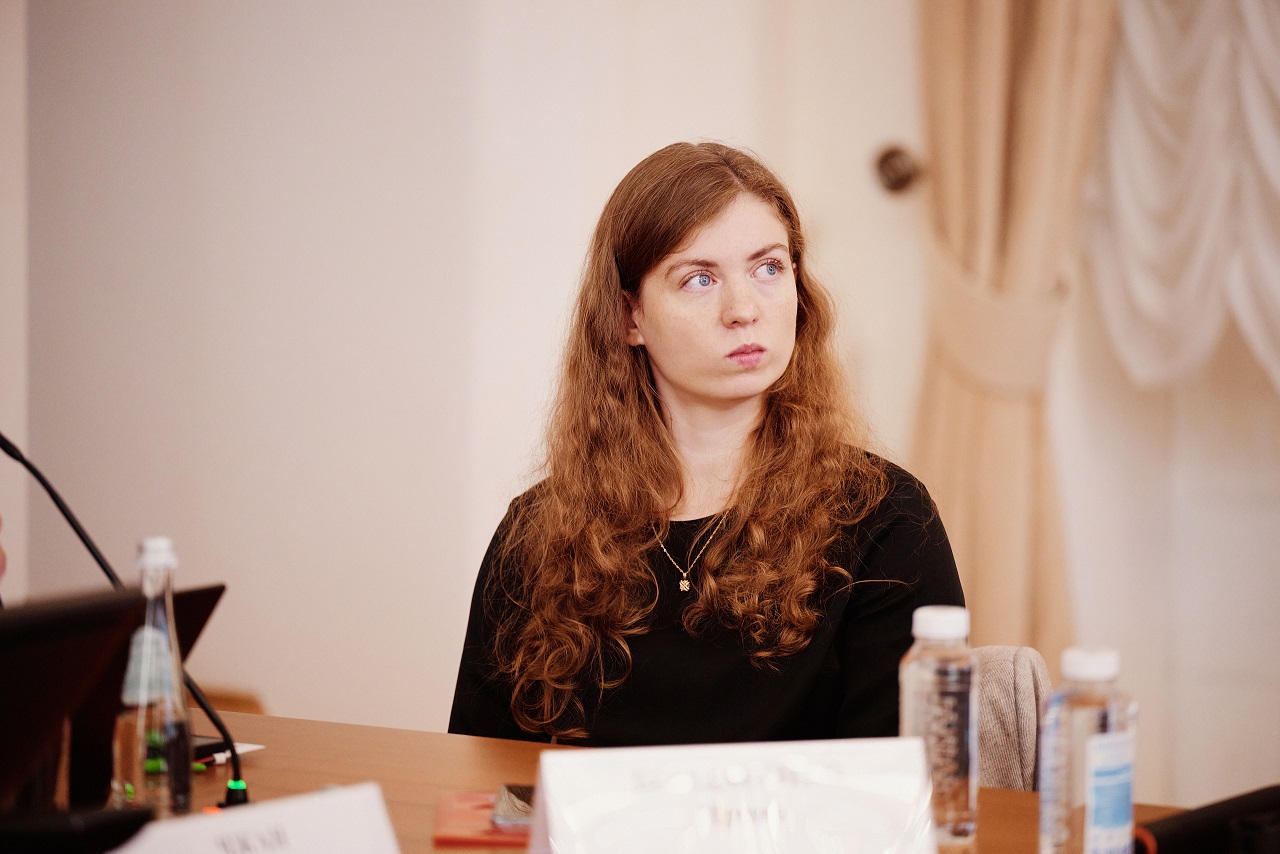Doing Business with China: Practical Advice for Russian Entrepreneurs

Doing business in China today requires expertise in the specifics of national culture, business ethics, and sanctions risks. HSE's Eastern Perspective continuing education programmes, which feature the involvement of leading experts and businesspeople, provide the knowledge and skills needed to enter and work successfully in the Chinese market. HSE University recently hosted a conference on doing business with China.
HSE University and the Russian–Chinese Chamber for Trade Promotion of Machine-Technical and Innovative Products, together with the Committee for International Cooperation of the Business Russia All-Russia Public Organisation and the Moscow–Beijing Business Cooperation Centre of Business Russia, held the scientific conference ‘Doing Business with China: Practical Advice for Russian Entrepreneurs’ on September 17–18.

Prof. Natalya Guseva, Academic Supervisor of the Eastern Perspective programmes, emphasised the importance of creating a series of educational products that provides students with systematic knowledge of China and practical skills, since standard work models in Europe are ineffective in Asian countries. ‘If we want to succeed, we need to understand that we are dealing with the world's leading economy. We intend to provide clear practical tools and an understanding of what happens in China, how to enter this market, what strategies should be used to achieve success and compete in the Chinese market, how to position our products correctly, and how to protect our innovation and intellectual property and promote our products among Chinese consumers,’ said Natalya Guseva.

Pavel Ustyuzhaninov, Executive Secretary of the Russian part of the Russian–Chinese Chamber and Executive Secretary of the Committee for International Cooperation of Business Russia, noted the importance of studying the mistakes that prevent Russian entrepreneurs from doing successful business in China. He stressed that the conference participants will receive consultations from leading experts, sinologists, and business practitioners. Mr Ustyuzhaninov explained that joint continuing education programmes will help entrepreneurs learn the features of business in China, including the specifics of checking documents from suppliers and buyers, as well as the nuances of logistics, customs clearance, and trade cooperation.
He also shared successful stories of Russian–Chinese cooperation, such as those of Russian designers who won a Chinese tea packaging competition and entrepreneurs from the Krasnodar Region who grew new varieties of tea and opened a Russian tea house in Beijing.

Andrey Lavrov, Senior Director of HSE University, stressed that systematic work with China is one of the university's priorities. HSE University collaborates with China through academic exchange, education, and scientific and technical cooperation. He highlighted HSE’s focus on solving practical problems and the relevant content of the Eastern Perspective programme.

Anastasia Likhacheva, Dean of the Faculty of World Economy and International Affairs, called on the conference participants to ask questions of the experts. She noted that entrepreneurs from all countries tend to make mistakes when doing business in China. ‘When we talk about entering the Chinese market, we need to understand that it is constantly changing,’ she said. The dean of the faculty stressed that political rapprochement between Moscow and Beijing does not mean a significant change in the country's rigid business practices. ‘We need to discuss contracts in detail, negotiate carefully, and not count on any discounts, except for discussing a broader portfolio of projects,’ said Anastasia Likhacheva.
In her opinion, turbulence in relations with the United States may lead to a smoothing of regional differences in foreign economic activity, which presents both new challenges and new opportunities for Russian manufacturers and service providers.

Zhang Lijun, Director of the China Desk at B1 (formerly Ernst&Young) and lecturer of the HSE Programme ‘Eastern Perspective: Building Business in China,’ opened the session ‘Chinese Market—2025: Opportunities and Challenges for Russian Business.’ He said that China's GDP increased by 5.3% so far in 2025 compared to the same period in 2024, while exports increased by 7%. Most Chinese entrepreneurs believe that economic growth in the future depends more on domestic consumption, but many people in China are cautious about spending money. The slowdown in growth means that China needs to invest more in technology and infrastructure development.
Zhang Lijun pointed out that the rapid growth of mutual trade between Russia and China in recent years has been accompanied by the preservation of its structure. It will continue to grow due to the simplification of payments in yuan. However, large Chinese companies and their executives are focused on the American and European markets and therefore will be careful in cooperation with Russian companies by trading through third countries.
In response to a question from Natalia Guseva about the key mistakes made by Russian entrepreneurs in China, Zhang Lijun noted that they often don’t understand their Chinese partners and the specifics of national business ethics. It’s important to choose reliable and recommended partners. He also advised entering the Chinese market with products and services not manufactured in China.
Irina Bondarenko, legal adviser in international practice, presented a report on the impact of sanction restrictions on business in China. She highlighted general sanctions against Russian citizens and residents, personal restrictions, as well as blocking sanctions and sectoral restrictions. The lawyer drew attention to the fact that all sanctions may cause concerns among Chinese counterparties, since banning a certain person or company from exporting and importing products to the United States and Europe may cause problems for companies, banks, and individuals cooperating with them, in particular, blocking their accounts and assets in countries that have imposed sanctions against Russia. There are cases of a complete ban on trading operations and the possibility of conducting them when issuing special licenses.

Chinese companies are afraid of secondary sanctions, which may be applied if they helped circumvent restrictions and provided significant financial and technological support in carrying out actions prohibited for sanctioned parties. This also applies to banks, as there are sanctions against foreign financial institutions that conduct or facilitate significant transactions. Secondary sanctions are also aimed at manufacturers, exporters, and importers of goods critical to the Russian military-industrial complex, in particular microelectronics and digital software management. Restrictions have been imposed against companies from China, Turkey, and the UAE.
Irina Bondarenko explained that in order to protect the interests of Russian companies, there are options for restructuring, setting up companies in mainland China or Hong Kong. At the same time, the ownership structure, powers, and responsibilities of the parties and the procedure for protecting the interests of the beneficiary in the shareholder and option agreements should be clearly spelled out, specifying in detail the role of shareholders and foreign proxies. She also stressed the importance of personal connections, which make it possible to establish contacts with reliable Chinese partners who are friendly to Russian business.
Tatiana Vronskaya, expert in international transactions in goods and services, also participated in the session. The conference programme also included sections on working with suppliers; the legal aspects of foreign economic activity; negotiating with Chinese partners; sales practice and marketing; certification, customs, and cross-border payments; and a panel discussion on the challenges businesses pose to foreign trade education today.
The HSE Eastern Perspective series of continuing education programmes for entrepreneurs and managers includes the programmes ‘Building Business in China,’ ‘The Fundamentals of Building Business,’ ‘Strategy and Tactics of Building Business,’ and others. They provide comprehensive practice-oriented knowledge of how to establish and develop successful businesses in countries such as China, India, the United Arab Emirates, etc. The programme's lecturers are HSE University experts and top managers of companies in the real sector of the economy who have been doing business in the region for many years.
See also:
School of International Cooperation Launches at HSE University
The School of International Cooperation has been established within the HSE Faculty of World Economy and International Affairs (WEIA). The school initiates, promotes, and implements programmes for continuing education and professional retraining, corporate education programmes, and international intensive training courses for professionals and executives working with foreign government officials, businesspeople, entrepreneurs, students, and researchers.
‘One Must Possess Knowledge, Skills, and Competencies to Build a Successful Business in Eastern Markets’
HSE University’s Eastern Perspective expert club has held its first event—a business session dedicated to launching and developing successful businesses in India. The club was created by HSE experts to discuss tools, trends, and insights for cooperation between Russia and countries in Southeast Asia, the Middle and Near East, and North Africa. The event featured experts with years of successful experience working in the Indian market on behalf of major global corporations.
Virtual Mozart, Venture Capital Bot, and Educational Video Generation: How AI is Used at HSE University
In mid-November, HSE University hosted a meetup where faculty, researchers, and administrators presented their projects and shared experiences with using AI technologies in education and research. The meeting was part of the continuing professional development programme 'Artificial Intelligence in Education and Research.'
HSE University in St Petersburg Enters International Market of Continuing Education
For the first time, HSE University in St Petersburg introduced international partners to the programmes of continuing professional development (CPD) that have been implemented at the university. The presentation took place during the visit of representatives of the HSE Institute of Continuing Professional Education to India.
HSE University to Improve Qualifications of Russian Lawyers from Companies Doing Business in China and India
HSE University’s Faculty of Law has developed two new Continuing Professional Development programmes: ‘Introduction to the Indian Legal System’ and ‘Introduction to the Chinese Legal System.’ What makes these programmes unique is that well-known practising lawyers from these countries will teach there, while leading local law universities will act as partners. The target audience of the programmes is lawyers from Russian companies conducting foreign economic activities in India or China.
'The Main Focus Is on Providing an Understanding of What the Climate System Is'
HSE Online is launching a new course: Mechanisms of Climate Change. Students will learn not only how to critically assess information in media and differentiate scientific data from conspiracy theories, but also to independently conduct research into the climate system.
Record Number of Students Attend MBA Programme at HSE Banking Institute
The 21st cohort of the MBA Programme in Investment Management has started training at the HSE Banking Institute. The number of students this year was about 40 people. Students will gain knowledge and experience from practicing teachers, practice-oriented seminars, analyses of real cases, and joint projects with the country's leading banks and companies.
Updated MBA Launched at HSE Graduate School of Business
Amidst a turbulent market and tectonic shifts in the environment, senior executives of Russian companies are showing a greater need for business education. This spring, the HSE Graduate School of Business has launched updated Master of Business Administration and Doctor of Business Administration programmes. The programme organisers report a large number of incoming applications, and currently there are 50 students enrolled in the MBA programme.
‘Business Requires Medical Care Just as a Living Organism’
At the end of February 2023, the HSE Department of Innovation Management held a masterclass on ‘Diagnosing and Getting Rid of Toxic Personnel’. The event was organised as part of the advanced training programme in innovation and entrepreneurship for HSE students and staff.
‘How to Teach New Generations of Students?’
The final lecture in the course ‘Teach4HSE: Seven Key Principles of Teaching Excellence’ was delivered by Prof. Vadim Radaev, First Vice Rector of HSE University. His talk about modern problems in teaching and their potential solutions was available to anyone interested. This open talk was held online via YouTube and Zoom, with over 400 teachers from different HSE campuses, as well as representatives of other universities, attending the event.


